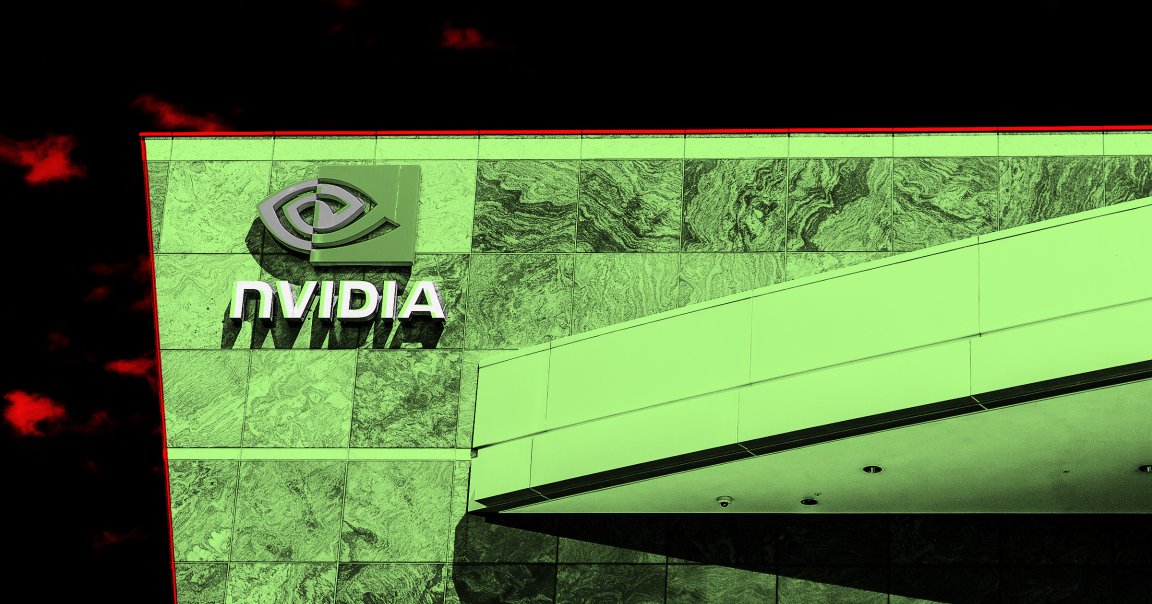
In case you haven’t heard, there might be a slight problem with the US economy: that it’s being propped up by a tiny number of tech companies betting big on an AI revolution.
Among the tech titans, no company is more important than the AI chip maker Nvidia. Often likened to a shovel seller during a goldrush, Nvidia’s revenue has exploded in recent years, from $26.9 billion in 2023 to a heart stopping $130.5 billion in 2025.
That unprecedented growth propelled Nvidia to become the first company in stock market history to close with a market cap above $4 trillion — currently the most valuable company in the world, ahead of longer-standing giants like Microsoft and Apple.
With so much riding on Nvidia, one would expect a diverse and healthy internal financial situation there. Sadly, that’s not necessarily what investors saw when the company dropped its second quarter tax filing just a few days ago.
Though the company brought in a mind-blowing $46.7 billion in revenue in the last three months alone, the source of that dough is highly concentrated among a few big spenders.
As TechCrunch pointed out, close to 40 percent of Nvidia’s simply unfathomable quarterly revenue came from just two clients. The two anonymous buyers, known as “Customer A” and Customer B” in the filings, accounted for an incredible 23 and 16 percent of the chip giant’s revenue, respectively.
Per the company, these whales are customers that purchase chips from Nvidia directly, like distributors or original equipment manufacturers (OEMs).
To TC‘s thinking, this makes it highly unlikely that a similarly massive company like Microsoft or Google is hiding behind Customer A or B, though they could be working through a third-party intermediary.
Speculation aside, to say this represents a “significant risk” for Nvidia investors, as Fortune put it, might be an understatement.
The company likewise faces significant risks due to export control uncertainty, rising competition from Chinese chipmakers, not to mention incredibly high expectations for future growth despite AI data center revenue that’s lagging way behind where it ought to be.
All that risk is leading some analysts, like The Motley Fool’s Christopher Ruane, to argue that Nvidia is at a tipping point: the chip firm is either way overvalued, or massively undervalued.
“The sort of spending we have seen in the past couple of years from large tech companies seems hard if not impossible to sustain over the long term in the absence of transformational business results,” Ruane wrote. “But I would be surprised if the price is the same five years from now.”
Whatever happens next could have drastic implications for any fund tied to the S&P 500, as Nvidia now commands a monster 7.3 percent of the total index — meaning the health of the overall stock market now hinges on whether Company A and Company B can continue spending like sailors.
More on Nvidia: Trump Says He Didn’t Even Know What Nvidia Was